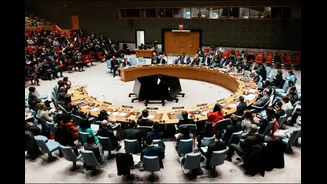The Silent Assault
The air quality in Delhi has deteriorated, becoming a significant health concern. The poor AQI isn't just an inconvenience; it's a toxic blend of pollutants
that silently attack the human body. This invisible threat has far-reaching effects, particularly impacting the brain. The constant exposure to polluted air creates a cascade of health issues. Understanding the connection between air pollution and brain health is crucial for taking preventative measures. The situation necessitates a deeper understanding of the risks associated with Delhi's air quality and prompts us to consider the measures needed to improve this predicament. It is more than just bad air; it's a potent mixture that silently harms our bodies.
Brain's Vulnerability Exposed
The brain is particularly vulnerable to the toxic cocktail present in Delhi's air. Air pollution can penetrate the body and reach the brain, causing inflammation and oxidative stress. Studies suggest that prolonged exposure to poor air quality can accelerate cognitive decline and increase the risk of neurological diseases. The pollutants disrupt the delicate balance of the brain, leading to impaired cognitive functions, memory problems, and a potential increase in mental health issues. This silent assault on brain health should raise awareness and prompts immediate action to reduce exposure. The impacts of air pollution extend far beyond respiratory problems. The invisible effects of air pollution on the brain can be devastating, affecting cognitive functions, memory, and even mental health.
Toxic Cocktail Unveiled
Delhi's air isn't just filled with a single pollutant; it's a dangerous mix of particulate matter, nitrogen oxides, ozone, and other harmful substances. This cocktail of toxins works synergistically to cause widespread damage. Each pollutant contributes its part, making the overall impact even more dangerous. The combination of pollutants results in a cascade of inflammatory responses, affecting both the respiratory and cardiovascular systems. The invisible threat posed by Delhi’s air quality is not limited to one specific pollutant. It's a complex, multi-faceted issue requiring a detailed understanding of the specific health implications of each component of this toxic mixture.
Immediate Action Required
Given the severity of the situation, immediate action is crucial to protect oneself from the detrimental effects of air pollution in Delhi. Simple measures, such as wearing N95 masks when outside, can help reduce exposure to harmful particles. Regularly monitoring the AQI and staying indoors on high-pollution days is also recommended. Air purifiers can be used indoors to further improve the quality of air. Individuals can contribute by supporting initiatives that promote clean air and advocating for policy changes aimed at reducing pollution levels in Delhi. Taking the necessary steps now is vital to safeguard personal health and reduce the risks associated with exposure to Delhi's poor air quality. Protecting yourself includes everything from checking the air quality and staying informed to adopting protective measures and supporting clean air initiatives.













